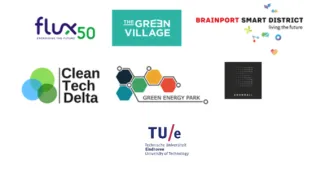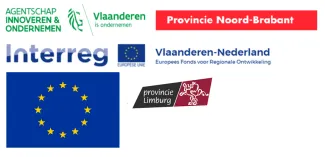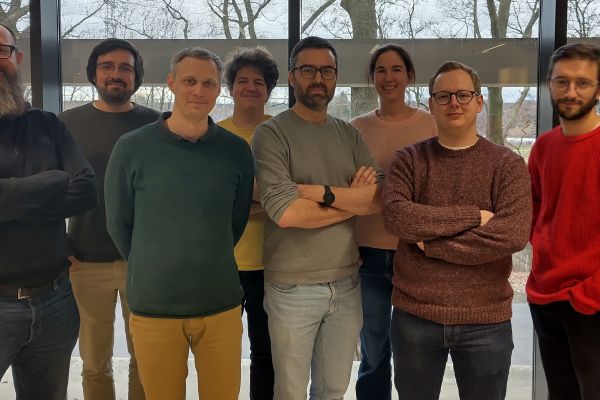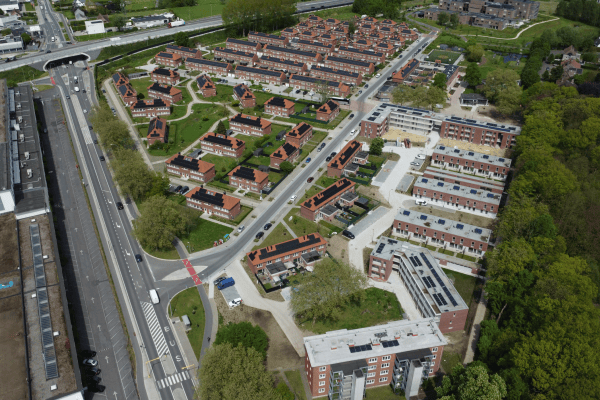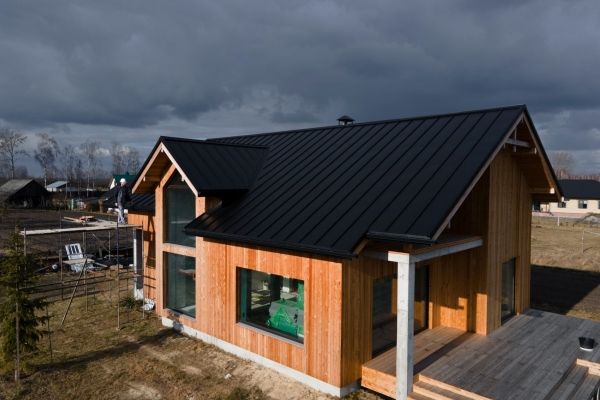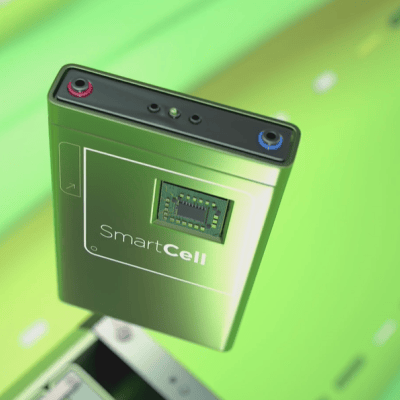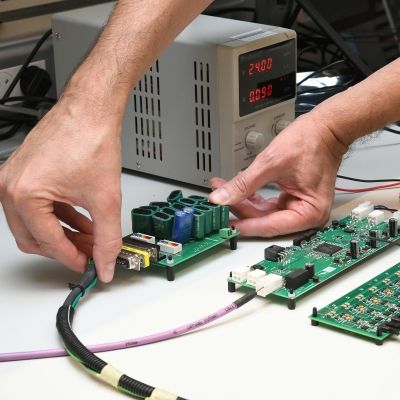Sustainable technologies on smart charging tested in Open Thor Living Lab
To meet climate ambitions, it is important that sustainable, technological innovations find their way to the market faster. Before rolling out to the market, however, new products must first be demonstrated, preferably in a real life environment. This way, the relevance of a technology can be proven and risks for investors and other interested actors are reduced. As Flanders wants to focus on the electrification of vehicles, the smart control of vehicle charging is indispensable. As part of the ConnectSME project, new technologies for smart vehicle charging were therefore tested at Thor Park in Genk. Simarly, SMEs with a new energy technology for electric charging were supported via vouchers. Thanks to the knowledge acquired within ConnectSME, the technologies can be further developed and help accelerate a market introduction in Flanders.
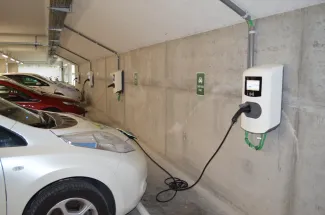
Our energy future will be marked by the massive electrification of our vehicle fleet, with commercial vehicles in the lead. This, however, presents challenges for companies, and the electricity grid in general. When many cars charge at the same time, it creates a spike in the grid, potentially threatening outages. Smart charging, or flexible charging, is one possible solution to avoid this. One step further is vehicle-to-grid, in which the electric car is not only charged, but is also available to supply its own energy to the grid, and thus can relieve the electricity grid at peak times.
"The Open Thor Living Lab is the perfect environment to demonstrate such technologies before they are rolled out to the market. It covers all the company buildings at Thor Park (including the EnergyVille research labs), the New Texas social district, the Waterschei garden district and the KRC Genk stadium. At the Open Thor Living Lab, an innovative district heating network, a direct current grid and an advanced data platform are in the process of being rolled out - all with the aim of making optimal use of available energy and testing and demonstrating technologies of the future," said Gerrit Jan Schaeffer, General Manager at EnergyVille.
Annick Vastiau, Project Manager at EnergyVille/VITO, continues: "The ConnectSME project helped SMEs to test their sustainable energy technology. In this Interreg Flanders-Netherlands project, five Dutch SMEs received vouchers to test the feasibility of implementing their technology in the Open Thor Living Lab. Three of these companies also received a second voucher that allowed them to effectively start demonstrating the technology in the Open Thor Living Lab."
In the One2Charge project, EnergyVille/VITO demonstrated the practical implementation of a charging island with central payment functionality, intelligent control of charging points and integration with the SmarThor IT platform. "In the experiment, the electric vehicle user can choose his desired charging preferences according to the final cost of the charging session to be paid. These preferences include, for example, the desired amount of energy, expected departure time and charging flexibility. Together, they determine the final price. In the process, a major focus was also placed on the user experience. A clear user interface allows for easy setting of charging preferences and knowledge of the resulting tariff. This enables the operator of a charging park to gain insight into consumer behavior in function of the proposed pricing," says Peter van der Zijde, director at One2Charge.
Zonnova advises companies and local authorities to achieve more sustainable energy consumption, both with regard to solar panels and shared cars. Since cars are more stationary, electric cars can provide energy services as a battery on wheels. The use of shared cars can be properly assessed and are professionally managed, which makes it easier to reach agreements. That is why shared cars are ideally suited for energy services. EnergyVille/VITO has expanded the smart charging square of EnergyVille 1 for Zonnova with a vehicle-to-grid or V2G charging station. Marc Okhuijsen, Director Owner of Zonnova: "The EnergyVille partners have four Nissan Leaf pool cars that support V2G. Since these cars are usually parked, plugged into a charging station, they are in reality batteries on wheels. This allows them to increase self-consumption of solar energy and capitalize on low hourly electricity prices."
StreetPlug is an innovative underground charging station for electric cars developed by PIA Automation of Tholen, the Netherlands. The company develops both classic charging stations and underground charging stations with attention to sustainability. For example, both types of charging stations are manufactured from stainless steel, resulting in a long service life. The underground charging point also has a number of inherent advantages such as avoiding "visual pollution" in the streetscape and being more resistant to vandalism. The underground charge point has already generated a lot of interest among Dutch cities and municipalities in recent years and the rollout is in full swing. Guy Vandevijvere, Sales Manager at Streegplug: "Via ConnectSME and EnergyVille/VITO we have now also gained further insights into the market forces surrounding charging infrastructure in Flanders. The smart charging aspect is of course as crucial for underground charging stations as it is for classic charging stations and EnergyVille/VITO demonstrated the integration and functionality of a StreetPlug charging station in the smart charging platform in EnergyVille. Through the knowledge built up within ConnectSME, the StreetPlug can be further developed and market introduction in Flanders can be accelerated."
"Once these technologies find their way to the market, the mass electrification of our vehicle fleet will be smoother. We are happy with the support of all partners and look forward to testing even more technologies in the Open Thor Living Lab," concludes Gerrit Jan Schaeffer, General Manager at EnergyVille.
About ConnectSME
ConnectSME is one of the projects that receives funding from the Interreg V programme Vlaanderen-Nederland. From 2014 to 2020, the European Commission has made 152 million euros available for the Interreg programme. This comes through the European Fund for Regional Development for cross-border cooperation, reinforcing and promoting innovation and sustainable development in the border region. To this end, a partnership between Flanders, the Netherlands, the five Flemish provinces and the three Dutch ones has developed a programme to invest in smart, sustainable and inclusive growth.
